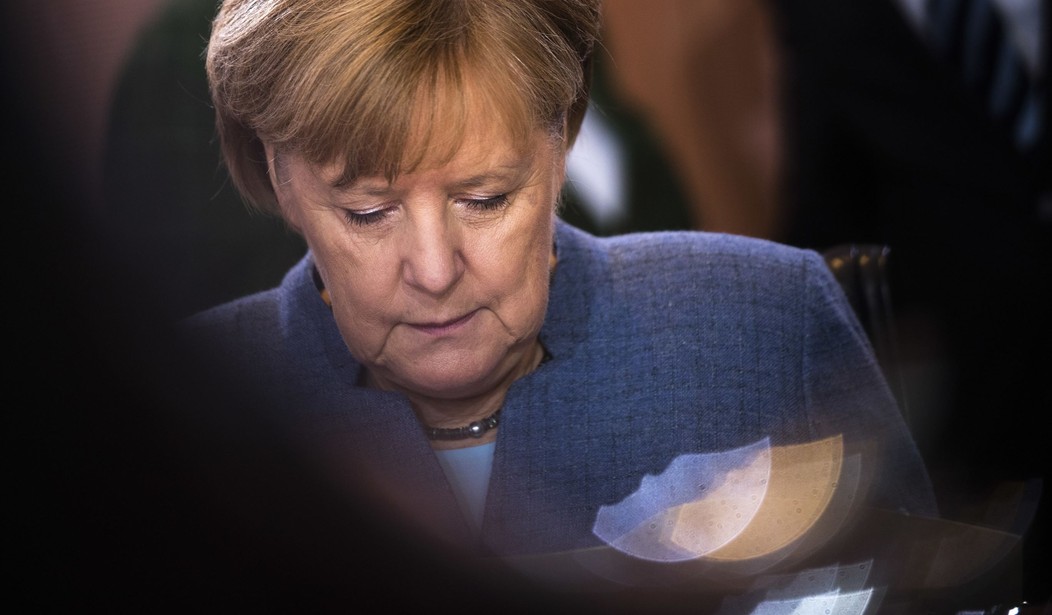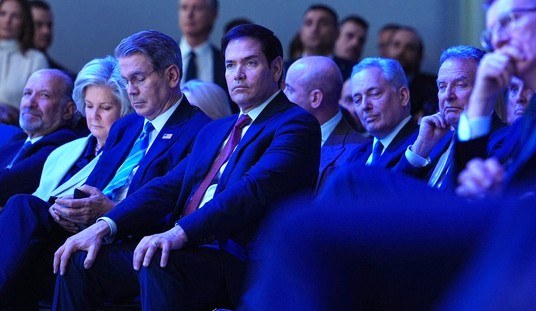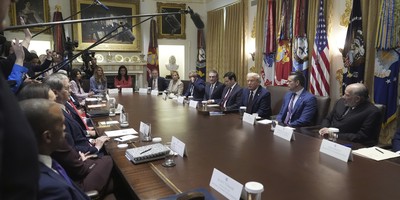It's been a tough era for Davos Man, the personification of the great and the good who meet in the World Economic Forum in that Swiss ski resort every January. The rebukes just keep coming. The European debt crisis. Brexit. Donald Trump. And now, and once again unexpectedly, Angela Merkel's failure to form a German government.
For a dozen years, European elites who have recoiled from George W. Bush and swooned over Barack Obama have regarded Merkel as a rock-solid firmament of good sense. Her considerable internal political skills, her seeming unflappability and her upholding of conventional wisdoms, both well- and ill-founded, have made her a favorite at Davos.
Merkel has been the pillar of the European Union and seems to have been the dominant force behind the multiple responses to each of a succession of euro crises. It helps, of course, that Germany has Europe's largest economy, one mostly unscathed by the 2008 financial crisis -- though that owes much to the Thatcherish labor law reforms of Merkel's predecessor, the Social Democrat Gerhard Schroeder.
By standard political science rules of thumb, Merkel and her Christian Democrats should have been a big winner in the Sept. 24 elections. The national unemployment rate is 3.7 percent. Inflation, the bugaboo of Germans since the 1920s, is low. The Social Democrats' leader is untested in national politics.
Yet the CDU and its Bavarian partner, the CSU, got only 33 percent of the vote -- their lowest percentage since West Germany started voting in 1949. The SPD, arguably the world's oldest social democratic party, plummeted to 21 percent. The two major parties thus barely topped 50 percent, compared with 76 to 77 percent from 1992 to 2002 and the high 60s from 2005 to 2013.
Recommended
This, like Brexit in Britain and Trump's victory in the United States, was a slap in the face of the political, media and business establishment.
The reason is not hard to grasp: The establishment hasn't been performing very well of late. You don't have to be as harsh as former media baron and Franklin Roosevelt biographer Conrad Black, who wrote regarding the 2016 presidential election, "The previous 20 years of government had been utterly and bipartisanly incompetent, in the White House and the Congress," or The New York Times' sorta-conservative columnist David Brooks, who put it more succinctly: "Our elites really do stink."
You just have to look at what has been happening -- in this case, in Europe -- and how Angela Merkel ("a skilled and unideological dealmaker," says The Economist) has been following Davos theology on the European Union, climate change and immigration.
First, Europe. The euro, the common currency imposed on most of the EU (Britain wisely stayed out) in 2002, has not unified the Continent but divided it -- and for the very reasons Margaret Thatcher set out in 1990: A supranational currency will not suit the needs of multiple countries with different economic cycles and economic cultures.
The solution of French President Emmanuel Macron and many Eurocrats is a continentwide finance ministry. That's a non-starter now, given Merkel's weakness, and probably always was. The avowed goal project of the European Union, "an ever closer union," has come unglued.
Second, climate change and energy. After Japan's Fukushima nuclear plant disaster in 2011, Merkel unilaterally decided to shut down Germany's non-polluting nuclear plants and, in a country with unreliable sun and wind, rely on renewables. So Germany now imports American coal, has higher emissions and has hugely high electric rates.
Third, immigration. Europe has opened itself up to Muslim immigrants, has failed to assimilate them and suffers from increasing Islamic terrorism. Merkel upped the ante in September 2015 by inviting in more than 1 million unregistered "refugees," supposedly from Syria but also from distant Mali and Bangladesh.
Prophecies that they would supply the skilled labor low-birthrate Germany needs have proved laughable. Murder and sexual assaults, though covered up by the government and press, have been dismayingly frequent.
These unforced blunders, in line with the Davos mindset, helped the free market Free Democratic Party to rise from 5 to 11 percent and the unsavorily nationalist Alternative for Germany to go from 5 to 13 percent. That left Merkel, understandably shunning the AfD and neo-communist Left Party and with the SPD no longer willing to join her CDU in coalition, trying to form a coalition with the FDP and Greens.
The FDP understandably balked at the Merkel/Green energy and immigration policies, leaving Merkel having to govern without a majority or face new elections. Merkel may be an admirable person, but Germans seem to have concluded that her Davos-praised policies "really do stink."

























Join the conversation as a VIP Member